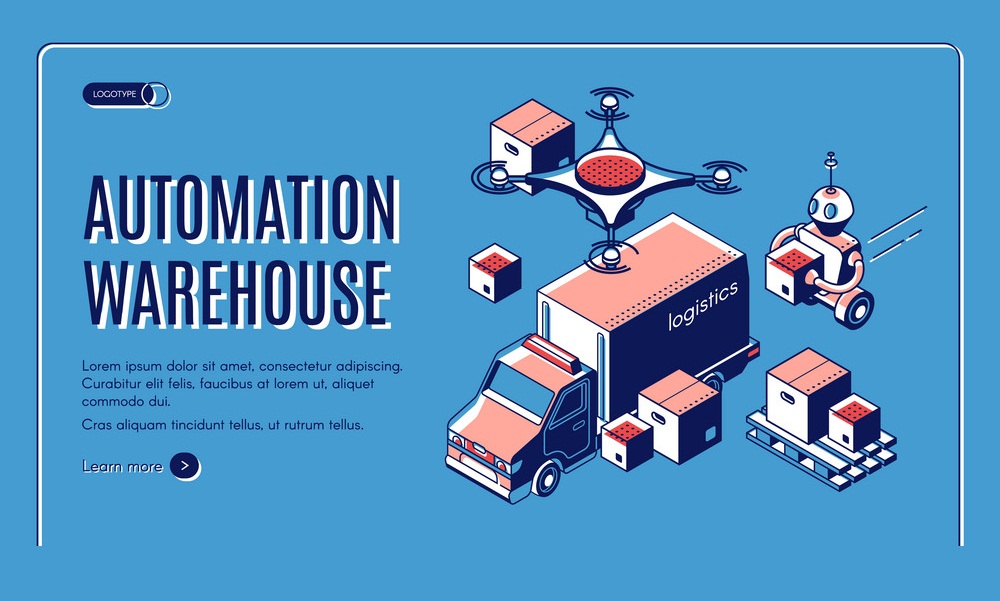Warehouse Automation is generally touted as one of the best approaches to help ROI by diminishing work requests, upgrading precision, and improving proficiency. “One undeniable certainty exists,” as per Supply Chain Management Review. ” Warehouse Automation is one of the keep going zones where long haul expenses can be altogether diminished.” But some consider stockroom computerization as programming, while others consider mechanizing a distribution center as executing computerized capacity and recovery frameworks (AS/RS). As a general rule, total Warehouse Automation involves mechanizing an assortment of parts of activities, from programmed information catch to programming frameworks, stockpiling and recovery, and that’s only the tip of the iceberg.
All things considered, as indicated by a 2014 report from Monteage Technologies, 90% of warehouses across the world today are either completely manual or have actualized just low-level automation into their activities. And keeping in mind that the normal coordinations division may be taking a gander at a time of four to five years before understanding an arrival on speculation for computerization advancement, the result is certainly justified regardless of the hang tight for the individuals who make savvy, key interests in mechanization.
We’ve assembled this far reaching manual for plot the numerous parts of warehouse automation you should know – and the prescribed procedures for actualizing every feature of mechanization effectively.
What is Warehouse Automation?
In a nutshell, warehouse automation is one of the best tools that helps warehouse managers to automate various activities with high-accuracy and achieve greater outcomes through the use of one or more technologies. The best warehouse automation solutions are scalable, ergonomic, and provide a return on investment (ROI) in months, not years.
Warehouse Automation comes in two parts: Process Automation and Physical Automation.
Process Automation, some of the time alluded to as system automation, digitizes manual procedures like stock information assortment and coordinates that information into your product condition, for example, your database or Enterprise Resource Planning (ERP) framework. This kind of automation runs on a biological system of barcoding and remote standardized tag scanners to information and track information, which is then conveyed through programming to an incorporated vault where the data is put away for future recovery.
An overview led for Zebra’s Warehouse Vision Report found that 59% of IT and operations personnel in production, retail, transportation and wholesale market segments wanted to grow process automation somewhere in the range of 2017 and 2022.
Physical Automation, which incorporates different types of mechanized automation, alludes to the utilization of robots and mechanical frameworks in the distribution center. All the more exorbitant to actualize, physical robotization just gives a sensible ROI to bigger high-volume stockroom and dissemination focus (DC) tasks. Instances of physical mechanization incorporate merchandise to-individual (GTP) innovation, driverless computerized guided vehicles (AGVs) and Autonomous Mobile Robots (AMRs, for example, those made by Fetch Robotics.
Fundamentals of Warehouse Automation
A large part of retail companies’ success lies in their ability to create effective supply chains, cut costs and thus expenses. In turn, this can be achieved with the help of an automated warehouse system covering the most important warehouse operations. They often include inventory and back-office management, picking and delivery, barcodes scanning, handling charges, etc.
Why Automation is important for large warehouse and manufacturing companies?
The distribution center possesses a basic job in the gracefully chain. As a center part of coordinations the board, your stockroom isn’t only a back-end activity that stores merchandise, materials or resources. It’s a basic connection crucial to the achievement of the more prominent flexibly affix it’s associated with. Issues or postponements in the distribution center activity can stream downstream to affect invoicing, income and consumer loyalty.
Every WMS software development company in India and custom software development company in India provides WMS software Development services to streamline warehouse’s complex operations or activities.
Since wasteful procedures can have downstream results, that implies the converse is additionally evident. Utilizing automation, proficiency gains made in the distribution center can be passed on, driving upgrades in the remainder of the association and flexibly chain.
Throughout the decades, warehouse center administration has formed into a perplexing science. Computerization innovation takes advantage of this information base to situate the distribution center to improve execution, catalyze quicker turnaround in flexibly chain process cycles, and bolster organization development.
Reduce the cost
Automation decreases overhead, driving cost reserve funds related with work, hardware and support, while additionally expanding throughput. It additionally pushes down burns through for effort utilization, extra room and security episodes.
Workforce Productivity & Retention
Automation can raise the efficiency of every laborer without expanding your headcount, thus expanding the throughput of each move. By making the occupations of your stockroom group simpler and more secure, you make a progressively alluring work environment—a significant factor in the present market.
Healthier Inventory
Automating processes, for example, information assortment and stock exchanges, can help decrease lost stock, shrinkage and removal while likewise pushing toward 99.9% precision. This degree of stock control implies less delivery mistakes too. It likewise adds to diminishing or wiping out the requirement for organizing to help without a moment to spare (JIT) techniques for request satisfaction.
Sustainable “Green” Practices
Automation diminishes the measure of vitality required to run your offices, bringing down costs, waste and land use, and limiting your office’s effect on nature. These advantages become particularly effective for refrigerated or temperature-controlled offices or distribution centers that handle perilous waste.
Here are some tips on optimizing a warehouse layout-
Change aisle widths
By assembling racks, your workers can make a great deal of extra space for different merchandise. In any case, don’t attempt to capitalize on the space. Ensure that your representatives have enough space for advantageous and safe working conditions.
Re-organize cargo
Numerous organizations place comparative products together. In any case, it’s not what’s best for the beat of the work process. Rather, it’s smarter to put the most requested merchandise close to the transportation paths.
Remove unsold goods
There’s no uncertainty that a ton of distribution centers store a few items that aren’t well known. That is the reason their lone object is to accumulate dust on your racks. You need to dispose of such items to get all the more free space and staff it with applicable products.
Estimate the travel time
A great deal of free space builds the time expected to arrive at specific merchandise. So you should lead a period evaluation that will recognize the zones that must be improved.
Here are some advantages of labeling technique-
Inventory tracking
Sometime products or goods can be lost because of a human factor. In any case, development following of each bit of load leaves no odds for mishaps when faculty loses a few products.
Arrival planning
Data gathering gives better arrangement and arranging. Administrators will have the option to check if the shipment stock shows up all the while with the load.
Improved picking efficiency
With all the required data, administrators ensure on-time takeoff and conveyance of each thing. In addition, administrators can reassign laborers to the zones of top need to forestall delays in the capacity work process.
Traffic optimization
You can upgrade the speed of traffic move through the office with the assistance of signs. Additionally, they help laborers to distinguish explicit emptying or picking load regions and racks.
No “out-of-stock” situations
WMS consistently knows the quantity of products left in the distribution center because of the steady following of merchandise. In this manner, the framework can consequently arrange missing pieces to reestablish the scope of items.
Conclusion
Warehouse Management Software Development or Inventory Management Software Development is the best solution to make save huge time and money that you invest in physical workforce. Automation in today’s time has become essential for the large industries to automate various operations such as inventory, product barcode scanning, location of stored items and more. If you are planning to build your own warehouse automation tool then it is the right time to go with and it requires custom development approach.














